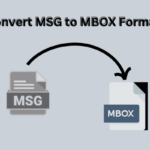In today’s world, where intellectual property (IP) plays a critical role, most people don’t intentionally set out to steal someone else’s inventions or creative work. Instead, they often draw inspiration from the innovations surrounding them, which can sometimes lead to unintentional violations and risky business decisions. Without a clear understanding of IP laws and rights, businesses can suffer severe consequences, including financial loss and even bankruptcy.
In this article, we’ll clear up some of the most common myths and misunderstandings surrounding trademarks, copyrights, and intellectual property as a whole.
1. If My Work Doesn’t Have a Copyright Symbol, Anyone Can Use It
Before the digital age, a work was considered protected by copyright only if it carried the copyright symbol. Without this mark, the work was often assumed to be free for public use or adaptation. However, with the advent of digital technology in the late 1980s, laws in the U.S. were updated to protect works even if they lacked a copyright label. While including a copyright notice is still a good practice to signal that your work isn’t free for use, your creations are now protected whether or not they carry the symbol.
2. Registering Intellectual Property is the Final Step
Many businesses believe that once their trademark or patent is registered, their intellectual property is fully protected, and they no longer have to worry about infringements. However, this isn’t the case. After registration, your IP rights can still face challenges, especially in cases of infringement or disputes over validity. Additionally, others may still attempt to infringe on your rights, meaning registration doesn’t automatically shield you from potential violations.
3. Everything on the Internet is Free to Use
A common misconception is that anything available online is free for anyone to use since it’s in the public domain. In reality, most online content, including text and images, is protected by copyright. Just because something is accessible on the internet doesn’t mean it’s free to use. Business owners and individuals should always assume that digital content is copyrighted, even if it lacks a visible copyright symbol.
4. Getting a Patent Doesn’t Guarantee Global Protection
If you’re planning to expand internationally but only hold a patent in your home country, that patent won’t automatically protect you in other markets. To safeguard your inventions globally, you need to obtain patents in each country where you intend to operate. This also means complying with the specific intellectual property laws of each nation. A good starting point is to consult the World Intellectual Property Organization (WIPO) for a list of international IP offices and regulations.
5. I’m a Small Business, So I Don’t Need Trademark Registration
Many small business owners believe that because they’re just starting, they don’t need to register a trademark. However, infringement can happen to any business, regardless of size or success. Your brand is just as susceptible to IP violations as any larger company. Failing to protect your intellectual property early on can lead to legal headaches and complications down the road. The sooner you register your trademark, the better protected your business will be from future risks.
6. Proving Copyright Infringement is Too Complicated
Many business owners shy away from pursuing copyright infringement claims because they assume the process will be overwhelming. However, proving infringement isn’t as difficult as it may seem. To build a solid case, you mainly need to demonstrate two things: a) the similarity between the works is not coincidental, and b) if the accused party claims authorship, the original creator should be able to present a valid registration certificate as evidence. With these key elements in place, the path to defending your rights becomes much clearer.
7. Intellectual Property is Only for Tech Giants and Big Corporations
Contrary to popular belief, intellectual property isn’t just for tech giants or large corporations—it’s beneficial to companies of all sizes. While high-profile firms like Apple and Google often make headlines for their IP, smaller businesses are frequently more innovative, using smart, creative approaches to stand out in competitive markets. Intellectual property offers protection to any business, regardless of size, and is one of the most valuable assets a company can have to safeguard its unique ideas and innovations.
8. Trademarks Only Protect Words or Logos
Trademarks are not limited to just words or logos. A trademark can be any symbol that can be graphically represented and that differentiates your goods or services from others. This includes not only words and logos but also colours (whether single colours or combinations), sounds, holograms, positions, and even motion marks. These elements can all be registered as trademarks to protect your brand’s unique identity.
Conclusion
Now that we’ve cleared up some common myths, you might be wondering how to better protect your intellectual property rights in Australia. For personalized guidance, you can reach out to a Central Coast lawyer at McAuley Lawyers, and we’ll help secure your rights effectively.

